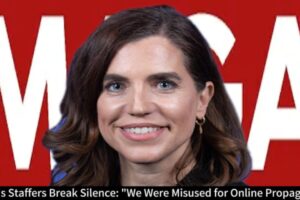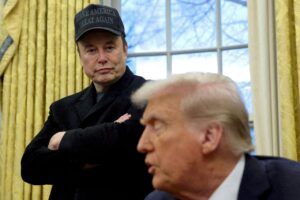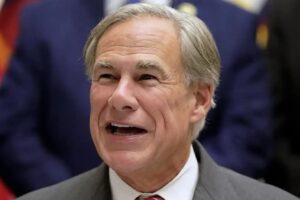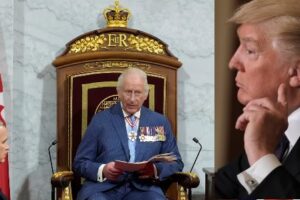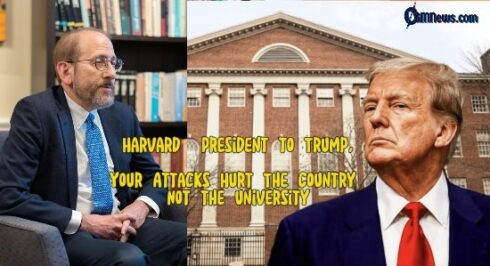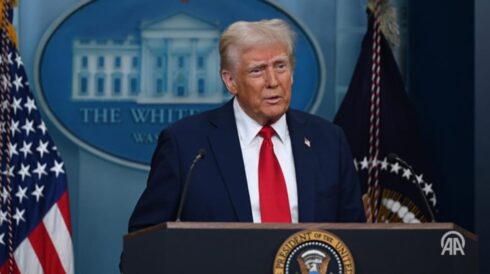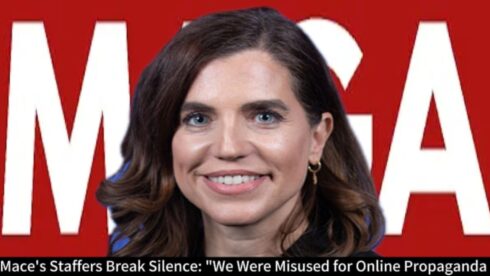In a pointed response to recent attacks from President Donald Trump, Harvard University President Alan Garber described the actions taken by the Trump-aligned federal administration as “perplexing” and ultimately damaging—not only to Harvard but to the broader national interest.
Speaking to NPR’s Morning Edition, Garber addressed the growing political and funding pressures placed on Harvard, particularly federal research funding freezes and restrictions on hosting international students. While he acknowledged the need to confront antisemitism and issues related to campus discourse, Garber questioned how stripping vital federal resources helps achieve that goal.
“Why cut off research funding?” he asked. “It certainly hurts Harvard, but it also hurts the country—because research funding is not a gift. It’s provided to carry out work the government designates as high-priority.”
Alan Garber: Culture Wars and Campus Realities
President Alan Garber believes Harvard has become an unintended battleground in a larger cultural war. He notes that criticisms often go beyond addressing real issues and drift into efforts aimed at discrediting or weakening institutions that symbolize progressive ideals or intellectual authority.
“I don’t fully know what the motivations are,” Garber said. “But there are people fighting a cultural battle. They don’t like what’s happened to campuses… and sometimes they don’t like what we represent.”
While acknowledging concerns around viewpoint diversity and free speech, he emphasized the need to address such challenges without undermining the broader mission of universities. He admitted that some conservative voices on campus feel unwelcome—a concern he takes seriously—but maintained that blanket punitive measures do more harm than good.
The Real Cost of Defunding Harvard: National Research at Risk
One of Alan Garber’s strongest objections is the threat posed to national progress if Harvard’s research funding is cut. Federal grants to universities like Harvard support groundbreaking studies in medicine, technology, and social sciences—many of which directly benefit everyday Americans.
He cited specific examples, including recent Nobel-level work on gene-editing and obesity treatments developed by Harvard faculty, highlighting how academic innovation contributes far beyond the Ivy League bubble.
“Everyone benefits from this kind of work,” Garber explained. “Redirecting these funds doesn’t just punish Harvard. It halts important work that impacts public health and national competitiveness.”
He further questioned the rationale of Trump’s statement suggesting such grants should be redirected to trade schools, noting that such decisions must reflect the needs and priorities of the nation, not political retaliation.
Alan Garber on International Students and the Fight for Open Dialogue
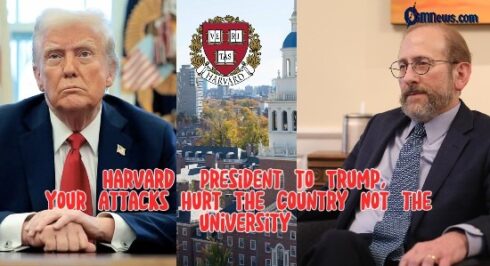
Alan Garber also defended Harvard’s commitment to international students, in response to a Department of Homeland Security (DHS) letter that accused the university of non-compliance and used that to justify visa restrictions. Garber called the accusations inaccurate and maintained that Harvard has cooperated fully with legal requirements.
He warned that cutting off access to international scholars and students undermines the educational experience for all, especially U.S.-born students.
“They contribute so much to our environment and help others open their minds,” he said. “Harvard is an American institution that engages globally—and I wouldn’t want to change that.”
The same goes for efforts to encourage viewpoint diversity and respectful dialogue. Garber acknowledged that the university has faced tensions—especially in the aftermath of the 2023 Israel-Hamas war—but emphasized recent efforts to foster a more peaceful and inclusive campus climate.
Antisemitism, Exclusion, and the Real Challenges on Campus
Alan Garber admitted that antisemitism and anti-Israel sentiment have created cultural problems at Harvard, but argued that these issues are far more complex than political rhetoric acknowledges. The most prevalent manifestation, he said, is social exclusion—students refusing to engage with Jewish or Israeli peers after learning their identity.
“That’s a serious problem we need to address,” he said. “But it’s not a problem solved by defunding science labs.”
He pointed to an internal task force that has identified core concerns and initiated reforms to promote respect across campus communities. But again, he stressed that the solutions must be thoughtful and institutionally grounded—not blunt-force policies driven by external political agendas.
A Warning to All: What’s Happening to Harvard Isn’t Isolated
Perhaps most chillingly, Garber echoed DHS’s own language to highlight the precedent being set. The letter sent to Harvard wasn’t just about one university; it was a message to all academic institutions.
“That’s exactly how it’s understood by leaders of other universities I’ve spoken with,” Garber said. “They see this as a message: If you don’t comply with what we demand, these will be the consequences.”
He urged Americans, particularly those far removed from Ivy League circles, to understand the stakes. The cutting-edge research, scientific breakthroughs, and intellectual infrastructure built in places like Harvard benefit the entire nation—not just the elite few.
In Alan Garber’s words, “Harvard has always believed its role is to serve the nation.” And in undermining that mission, the country itself stands to lose.



